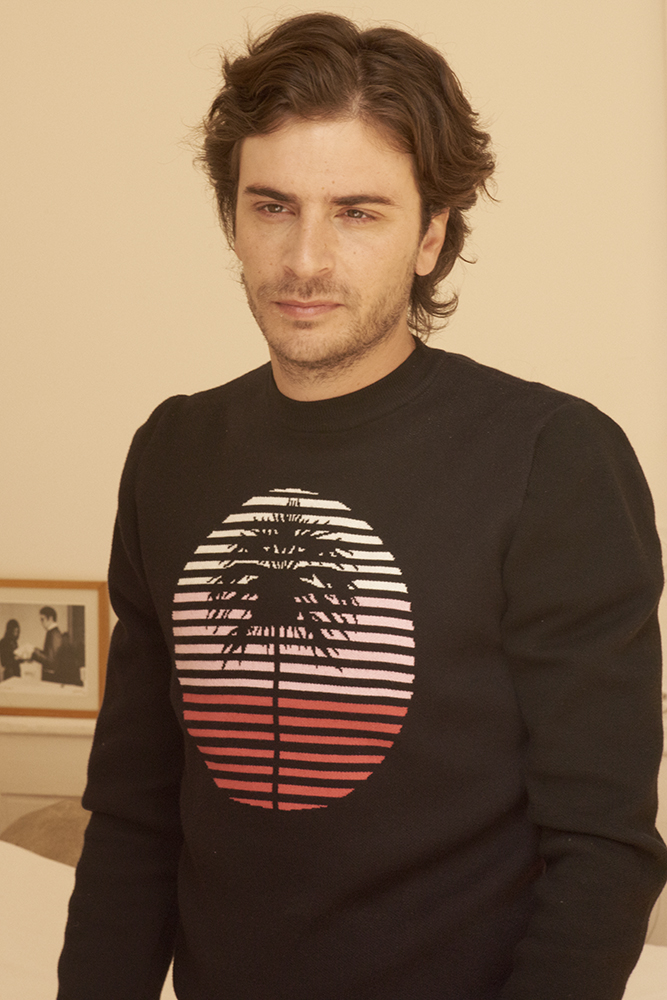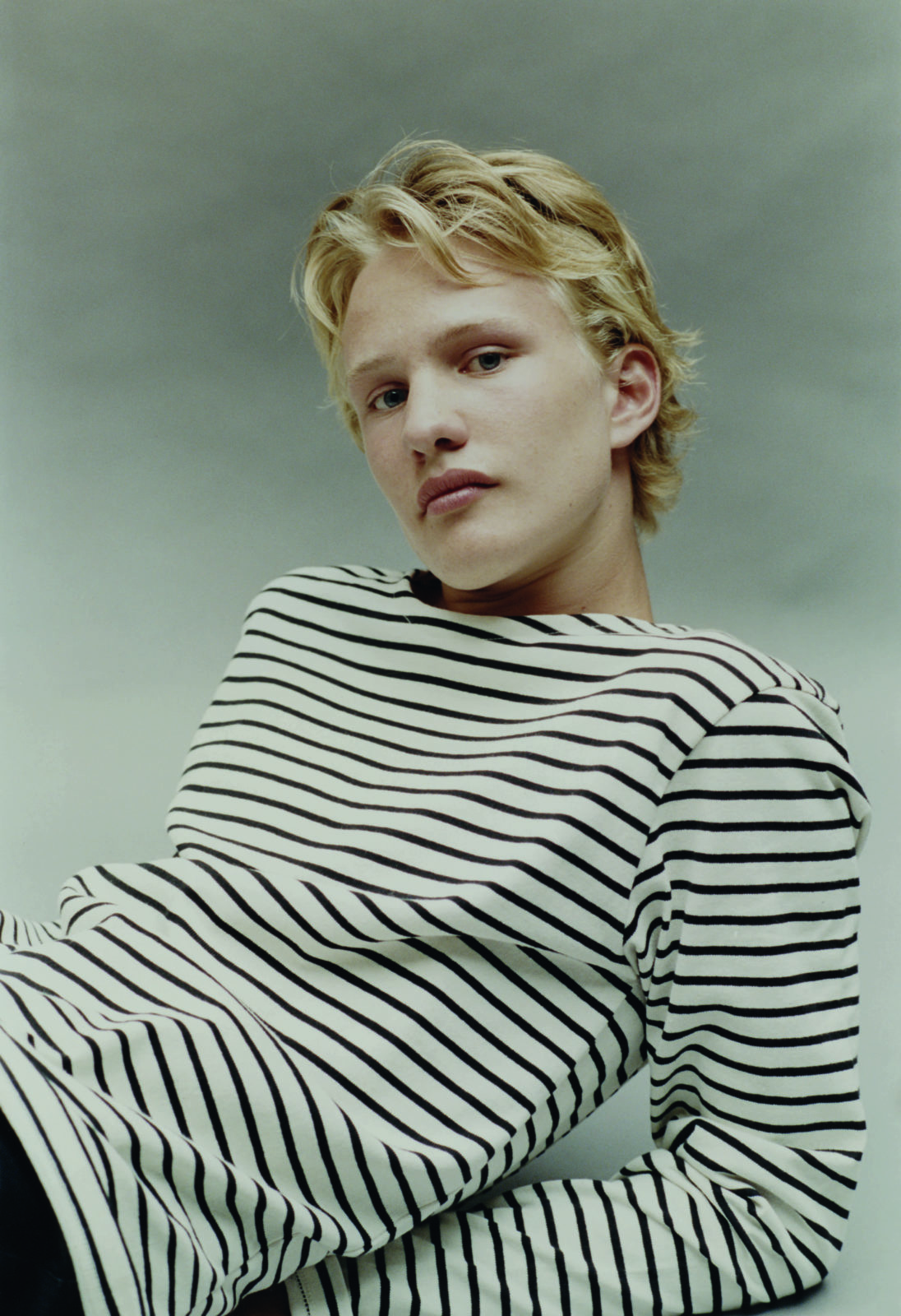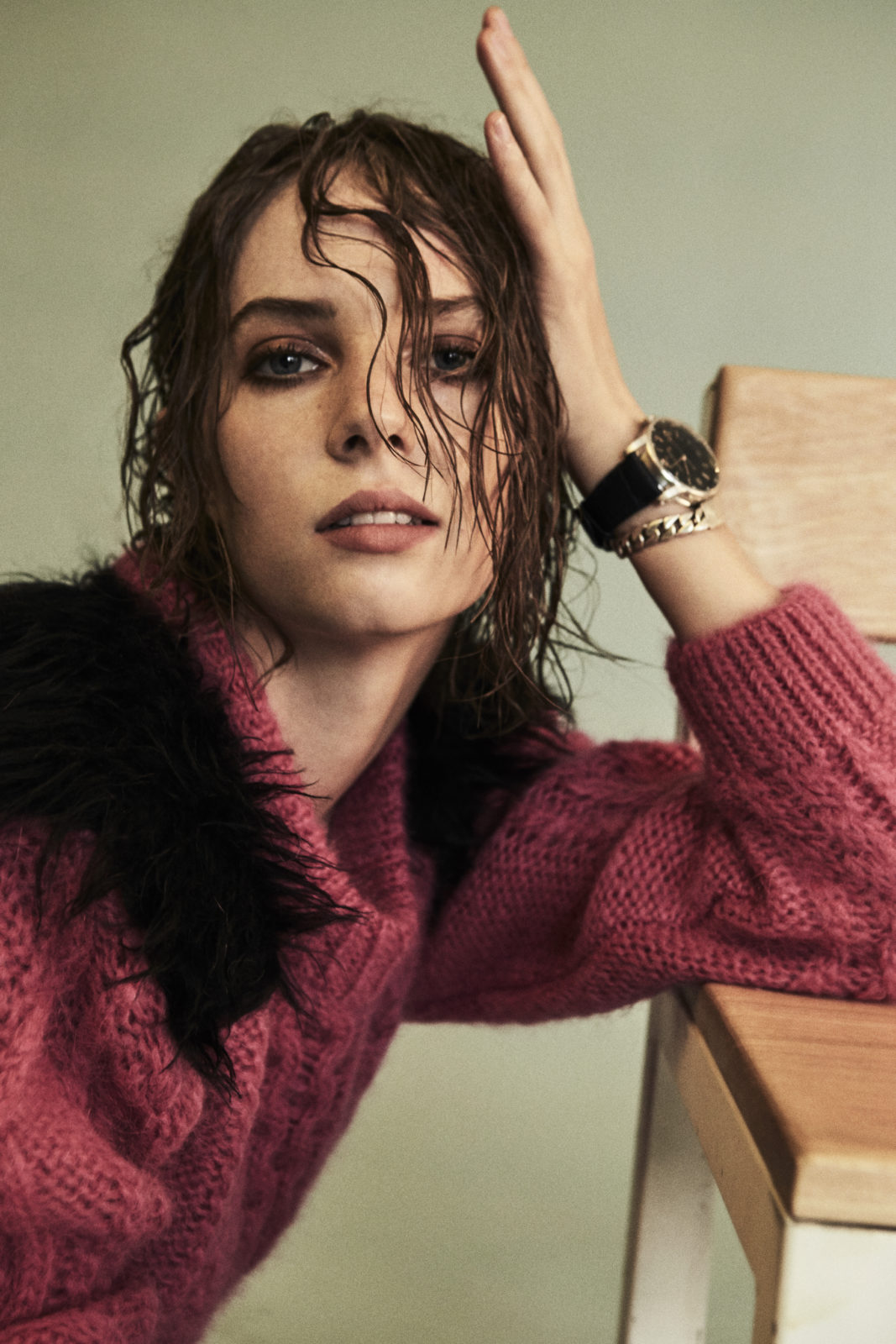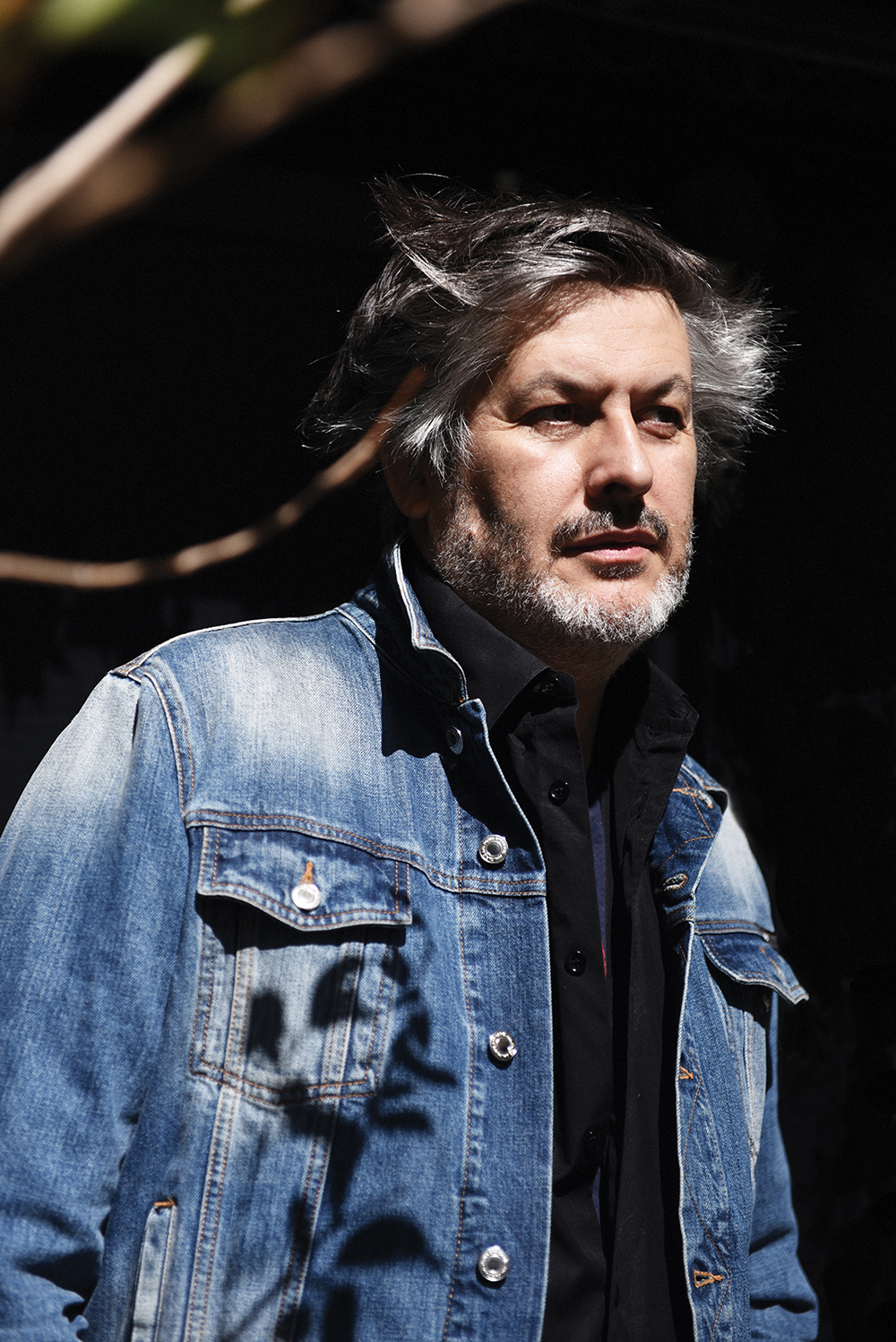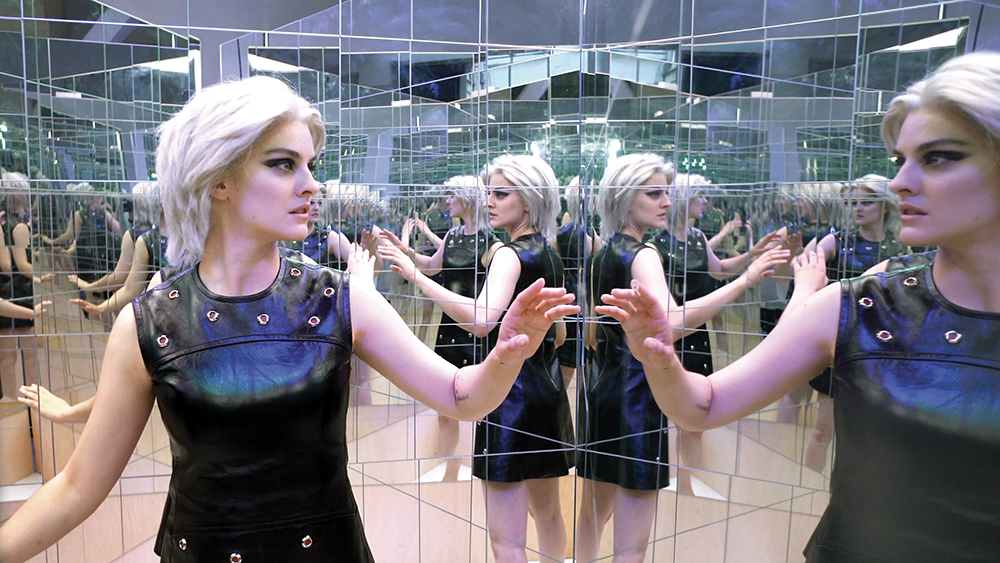
A MEETING BETWEEN NOEMIE MERLANT & ARMELLE LETURCQ
By Crash redaction
Rediscover our interview, shooting and video of Noémie Merlant, from our Crash#92.
Can you tell us about your career?
I came to Paris at age seventeen after an economic and social baccalaureate, so really nothing to do with film. My father guided me a bit towards theater and I enrolled at the Cours Florent in Paris. I came from Nantes and my parents were real estate agents, so I didn’t come from the film world at all. But my father felt that I was going to be interested… maybe because I did a lot of shows as a child, I don’t know. He told me not to study a traditional subject and to go into acting instead… (laughs)
That’s funny because normally parents push their kids to stay in school. Except for those who are already in film…
Yes, but that was not my case at all. Maybe it’s because my father didn’t go to school and he always managed on his own. He thought it was more fun and more in line with my personality – although I hadn’t figured that out yet. He wanted me to enjoy life, travel, work hard and flourish in acting classes. I was modeling to make a living while taking the Cours Florent. I knew right away that I felt best on set; it just made sense.
But at first, you didn’t know what you wanted to do for a living?
Not at all. I wanted to go to business school after graduating from high school, without really knowing why. I had never really done theater before. I was doing shows, but I had never really considered acting.
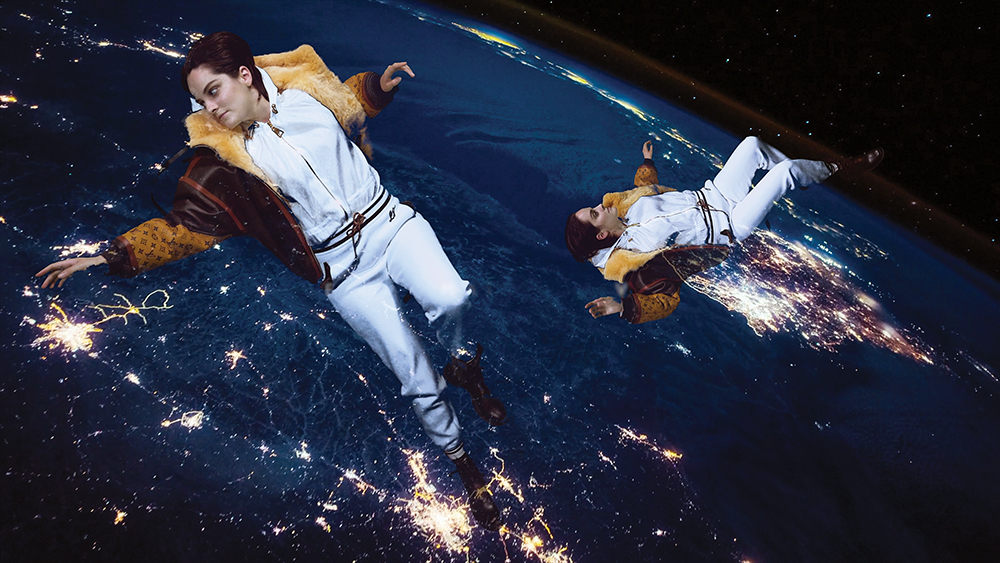
So you moved up to Paris, enrolled in the Cours Florent and started doing a bit of modeling…
Yes, I do modeling, because it was convenient – even though I had a hard time with it. It helped me feed myself, pay for my classes, etc… Then, in my second year at Cours Florent, I got a role in the film L’Orpheline avec en plus un bras en moins [“The Orphan Girl without an Arm”] by Jacques Richard, co-written with Roland Topor a long time ago. It was my first role, with a very small budget: we weren’t even paid. It was a black and white film in which I played a young woman with one arm. That’s where I met Melvil Poupaud. I was heavily exposed to theater at the Cours Florent, which I had been discovering for a few years, and Melvil and Jacques really introduced me to film. I didn’t have any film culture and they gave me a lot of films to see. That was the very beginning. Then I finished the Cours Florent and that was the beginning of my career. L’Orpheline avec en plus un bras en moins didn’t come out right away, then when it finally came out three years later, it was only shown in two theatres. It didn’t help me at the time.
But people talked about that film, right?
Very, very little. And we shot it in 2009 but it didn’t come out until 2013. I was named as a Césars Revelation in 2013, which got things moving for me, so during those four years I only did a few little things for TV. I was waiting for our movie to come out. After that, I was able to get an agent and meet with casting directors. I was able to make Once in a Lifetime with director Marie-Castille Mention-Schaar, which led to other projects with her.
What role earned you the Revelation at the Césars?
It was for L’Orpheline avec en plus un bras en moins, the first time. You can be named a Revelation twice. The second time was for Heaven Will Wait directed by Marie-Castille Mention-Schaar.
You were selected?
The first time I was preselected as a revelation. The second time I was nominated as a revelation.
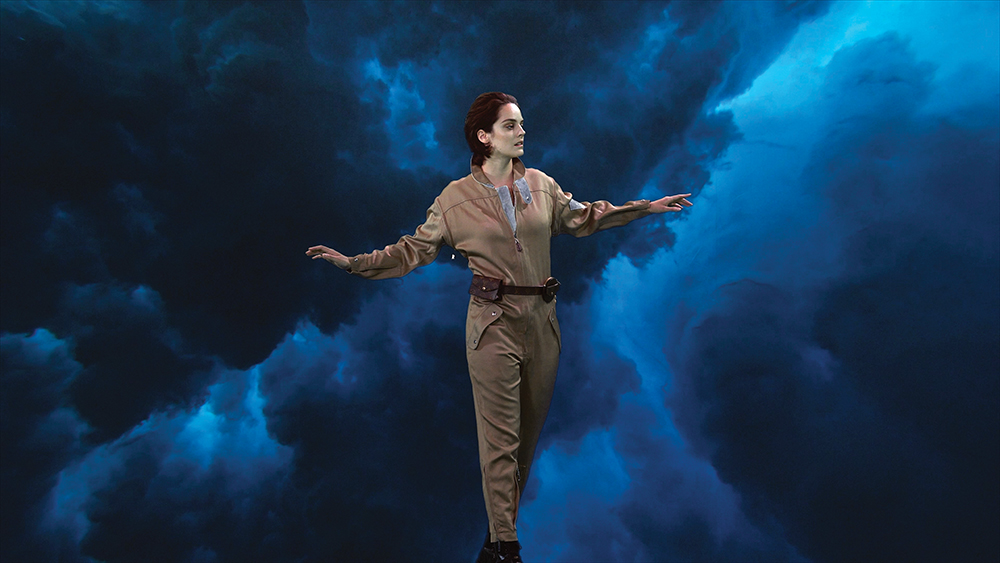
And that’s how you found an agent?
Yes, after the first revelation. Having an agent helped me move forward.
Who is your agent now?
Grégory Weill at Adéquat.
Is he the one who guided you through your first films?
He came along after Heaven Will Wait. For my first films, I had another agent. When you’re first starting your career, you don’t have a lot of roles to choose from. You do a lot depending on what you are offered. It’s very hard to have the luxury of choice. Or you have to have the money to be able to wait. But you can never go completely against who you are or what you want to put back into the world.
People get an image of you and are quick to box you in.
Yes, so you always have to be careful. It’s true that it’s always very hard to break out of those boxes people put you in. At first it was kind of hard for me to get out of the « model » box. A lot of casting directors knew I was a model and could not see beyond that label. Even without being a supermodel, casting directors in Paris know this because they often do ad or campaign castings.
All your projects tend to revolve around sexual identity. Is that by chance?
You never know what is by chance… But it was not a conscious choice.
Do you take a special interest in these topics?
Obviously there is a mix of both. I’m interested in exploring desire. Portrait of a Lady on Fire explores point of view a lot, the female gaze, and that’s when I came to a few realizations. I’ve always had the impression that my desire corresponded to what other people might be expecting. As a model, you become an object and try to match someone else’s desire. I never really asked myself about my deepest desires – apart from my desire to make films. These are questions I find interesting and important. The fact that desires have often been conditioned by a patriarchal society and that there is little representation of women who know and dare to follow their desires – whether in art or cinema. In this sense, the films I have been able to shoot explore and show new imaginations, new experiences.
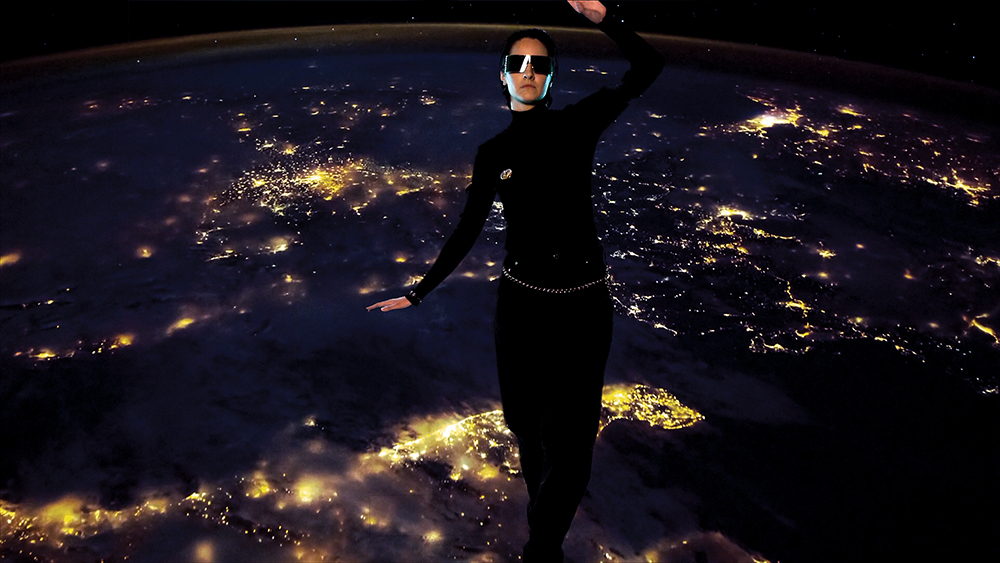
How did you meet Zoé Wittock, the director of Jumbo?
At casting. I shot that film a long time before Portrait of a Lady on Fire. Casting began three years before shooting. I hadn’t done much yet. When I read the script, I was captivated by the unusual love story that explores a different kind of desire and the acceptance of that desire. I met the director at the casting but she had to stop the auditions because she was waiting on funding. I saw her again two years later. She’s the same age as me, and we’re a lot alike. There was immediately a strong connection between us. She has tremendous energy. It was her first film and it’s been eight years since she wrote it.
Did she know you before casting?
No. But while we were still casting, she saw me in Heaven Will Wait, so it was a fairly long process. Afterwards, we rehearsed a lot before shooting, which lasted for months. Shooting didn’t start until a year after she chose me. We had time to think and find the character of Jeanne. It’s her first feature film and so there is a strong energy. It’s the moment when you start to find yourself as an artist. We have a lot of discussions. It’s exciting to support a female director making her first film. There is something magical about it.
And it was a lengthy process.
First films often take a long time to develop. It was supposed to be released on March 18, but quarantine came as a blessing in disguise, because we had finished promotion and it was going to get lost in a sea of other films. Now there are fewer films coming out, so it will be released on July 1. I think journalists want to support it, so they’re talking about it more. People have time to watch trailers again, and there is much less competition.
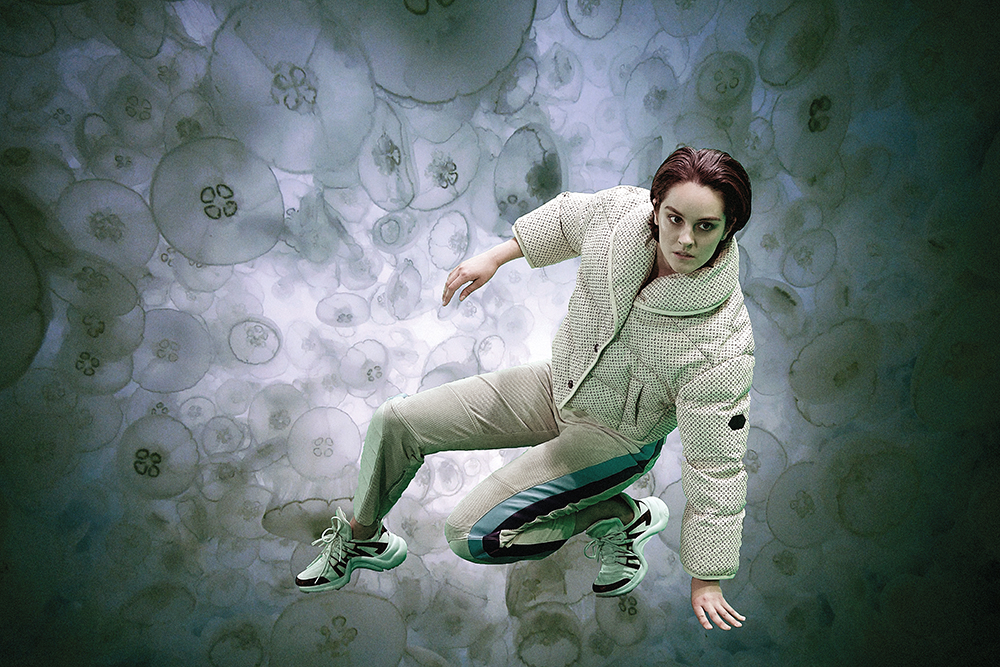
A lot of people have told me about it and already want to go see it. People have now had time to see the posters and get interested. It’s coming out on several platforms at the same time?
It came out this summer and was released in even more theaters than originally planned. Almost twice as many, which was great. It was also screened online for the Champs-Elysées Film Festival. But with everything going on right now, almost no one goes to movie theaters. It’s pretty catastrophic. So the film didn’t have much success, like most movies that have come out during this difficult time.
And your projects after Jumbo?
A Good Man, again by director Marie-Castille Mention-Schaar, which will come out in March I think. We still don’t really know how the reopening of movie theaters will go at that time.
When we launched Odyssey, our film project sponsored by Louis Vuitton, we really wanted to talk about the question of changing identity. It’s funny. We had no idea you would play this role, but in fact you are the perfect fit for the project.
A Good Man received the official selection label, which is good. It follows Aude and Benjamin, who love each other and have been living as a couple for six years. Aude is suffering because she can’t have children, so Benjamin decides he will be the one to bear them. I play the role of Benjamin and Soko plays the role of Aude. When I first read the script, it struck me as an important and urgent film, because it talks about the struggles of a trans man and his wife in terms of their access and rights to parenthood. I think it’s critical to talk about this topic and highlight what trans couples go through when they want to have children.
How have you experienced quarantine?
Adjusting to the change in pace was difficult at first, especially since I was diagnosed with Covid in the first week of lockdown. I was fortunate that none of my loved ones were affected. Afterwards, I enjoyed the moment of solitude and putting life on pause. It was good for me. I stayed in Paris with my dog.
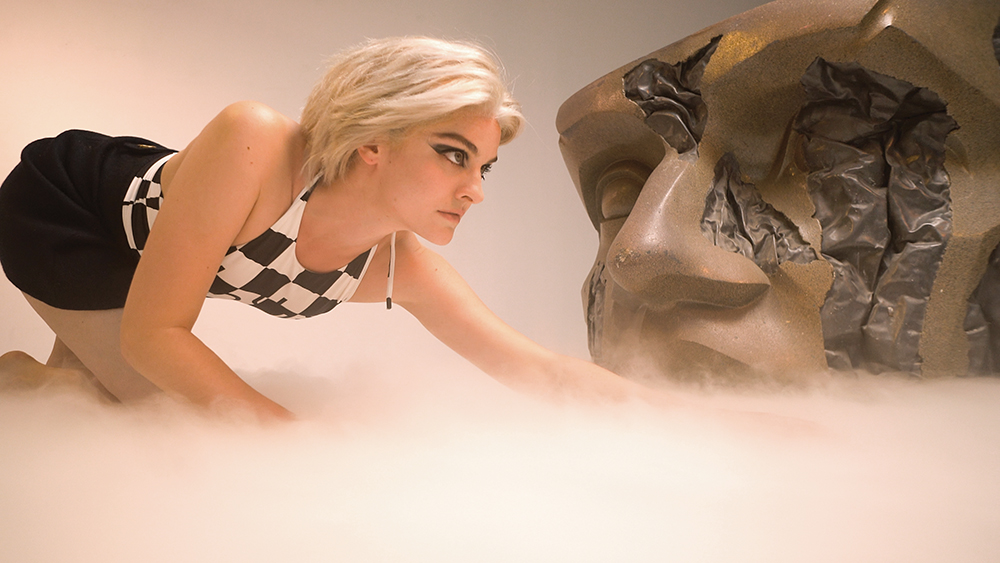
Did you take advantage of the time to read scripts?
I took part in Zoom castings, read scripts, watched a lot of movies… I did some writing, too. That time gave me a chance to reflect on my desires and wants, since everyone was on pause and we all had a lot of alone time.
It was nice because we knew everyone was on break.
Sometimes you feel guilty for doing nothing when everyone around you is busy. But in this case there was no reason to feel any blame because we knew that everyone else was sitting on their hands, too. It’s a strange feeling.
I think quarantine was beneficial for artists. But many people must have felt lost…
Yes, it was a painful time for many people and I think we have to stay mindful of that fact. We don’t all have the same chances in the face of the virus and anxiety. Nor was everyone able to experience lockdown with the same level of comfort. Just think about the women and children dealing with domestic violence, poor families who had to cope with even harsher living conditions and everyone who may have lost a family member…
How did the film world experience this period?
Many films were put on hold so that delayed everything. Not to mention the films that were supposed to be released. It’s even worse for them. I think a fund was set up to help restart filming. I get the impression that shooting is starting back up again. I will start filming again at the end of September and I can’t wait. There is also my feature I directed last summer… We were in the middle of post-production when lockdown began. We had to stop everything. We tried to move forward but it’s all very complicated. Now things are slowly starting back up again.
Do you have any upcoming projects?
Yes, a few.
Can you tell us about them?
Read the full interview on Crash#92, available in our Crash store.
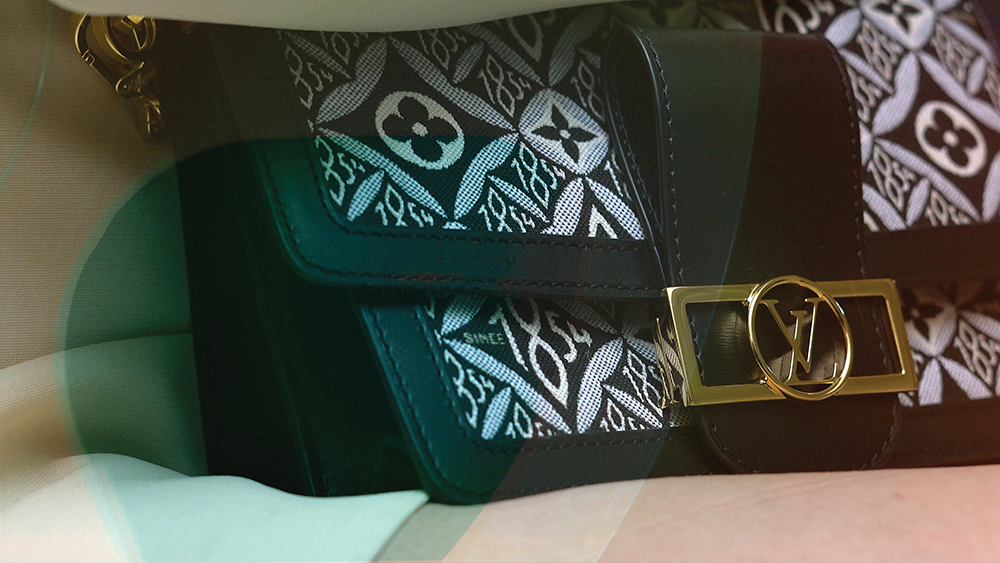
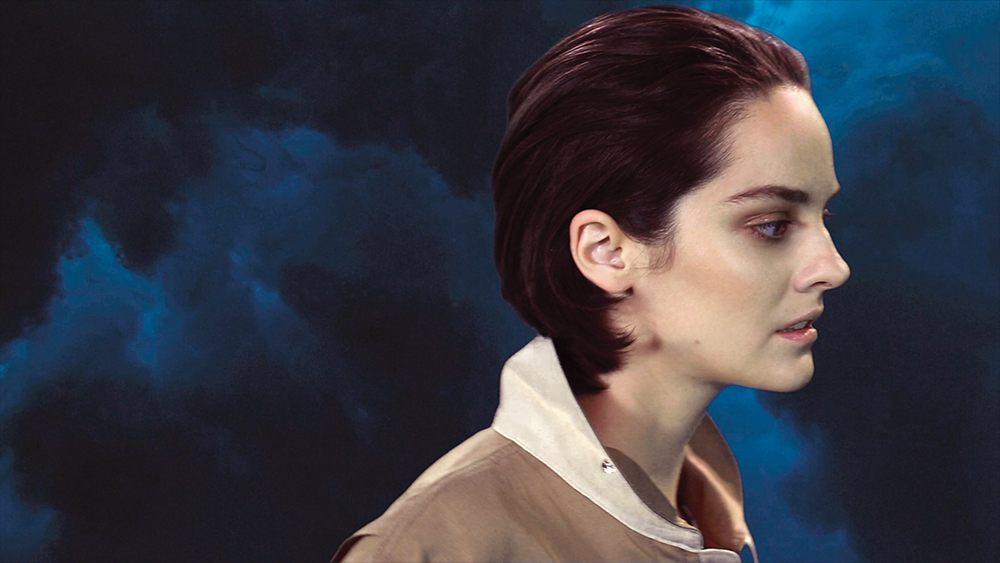
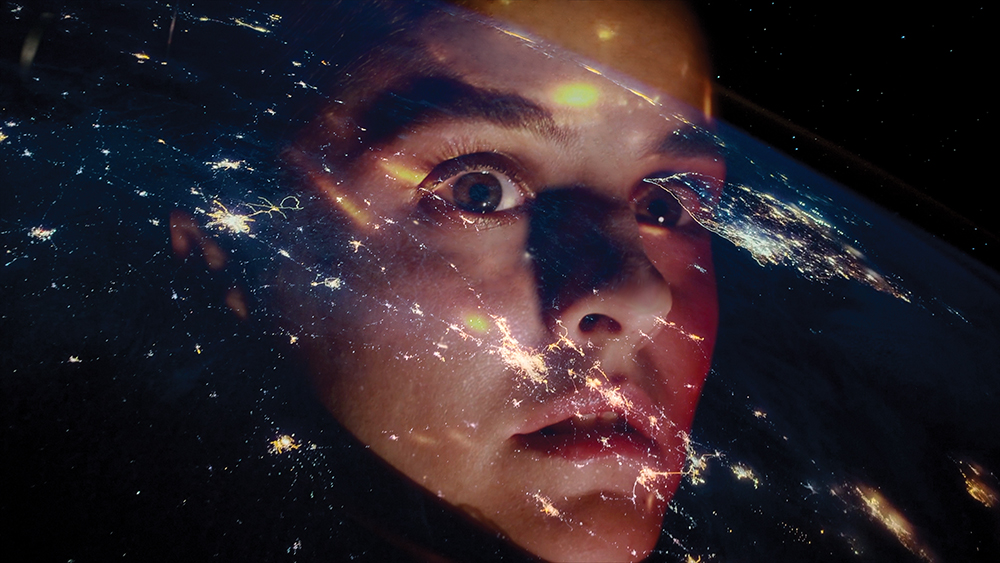
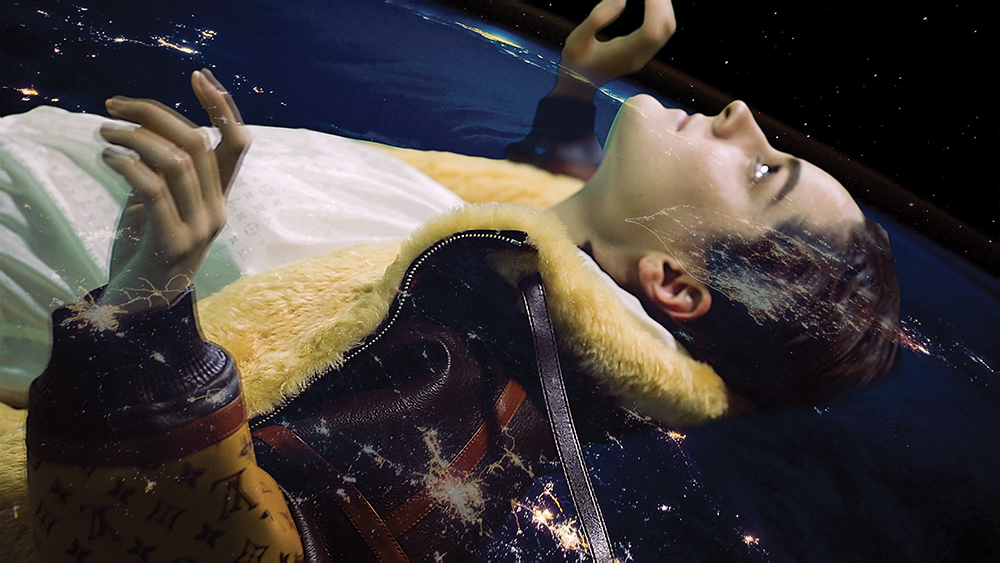
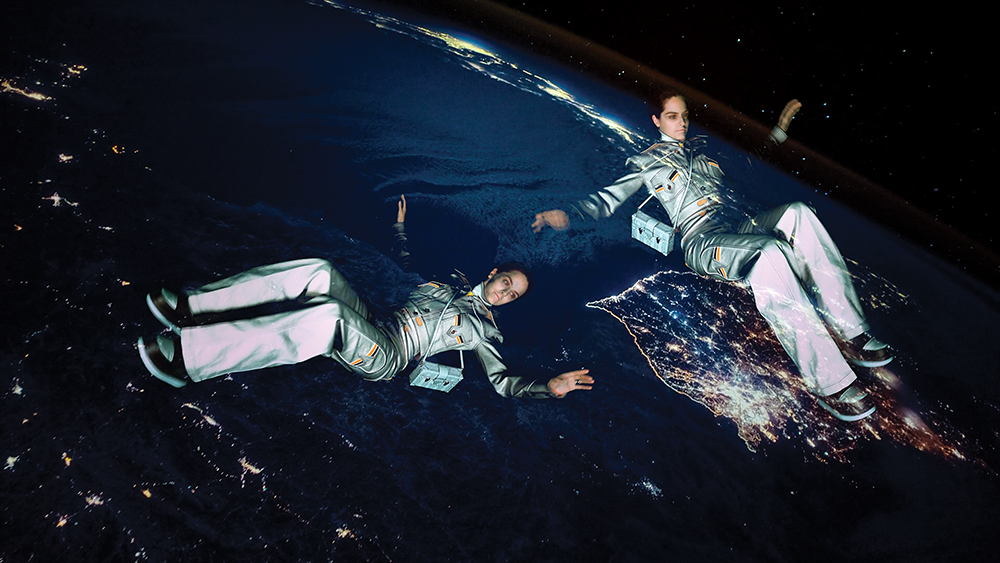
******
Photographer: Frank Perrin
Stylist: Armelle Leturcq
Make up: Lloyd Simmonds @agence carole
Hair: Stéphane Bodin @B Agency
Thanks to @GlameLaceParis for the wig
Stylist assistant : Pauline Grosjean
Light director: Quentin Chamard Bois
Film: François Leturcq
Set Design: Justine Ponthieux
Production: Raya Farhat






